
Roundtable Conference
Digital Minds: Navigating Social Media and Mental Health
About The Event
As social media continues to embed itself into the daily lives of millions, it has not only transformed the way we communicate and interact but also significantly affected our psychological and emotional well-being. This impact is particularly pronounced among younger demographics, who are often the most active users of these platforms.
On one hand, these platforms have made it possible to maintain and strengthen relationships that might otherwise be strained by physical separation. On the other hand, the rise of social media usage among adolescents and young adults has led to an increasing focus on its role in shaping mental health outcomes. Studies have shown a correlation between excessive social media use and the onset of mental health issues such as anxiety, depression, and loneliness.
The constant exposure to curated images and lifestyles, cyber-bullying, and the pressure to maintain a certain online persona can exacerbate feelings of inadequacy and stress, leading to adverse mental health effects. Moreover, the addictive nature of social media platforms, designed to keep users engaged for extended periods, can contribute to sleep disturbances and reduced face-to-face interactions, further impacting mental well-being.
Given the double-edged nature of social media’s impact, psychologists, educators, policymakers, and the general public have increasingly turned their attention to understanding and addressing these complexities. There is a growing need for nuanced discussions that consider both the positive and negative aspects of social media use.
Apropos of this view, CASS Lahore organised a roundtable discussion that explored the complex relationship between social media usage and mental health, examining both the positive and negative aspects. This session fostered a comprehensive understanding of the issues at hand and proposed actionable strategies for promoting healthier social media habits.

Key Takeaways
- Misinformation and the Post-Truth Era
The unchecked spread of misinformation on social media has blurred the lines between truth and falsehood, weakening societal consensus.
- Echo Chambers and Polarisation
Social media algorithms reinforce biases, creating echo chambers that deepen societal divisions and limit exposure to differing perspectives.
- Mental Health Risks and Emotional Validation
Excessive social media use contributes to mental health disorders, as users become addicted to online approval, leading to anxiety and emotional distress if expectations are not met.
- Diminishing Attention Spans
The fast-paced nature of social media has reduced users’ ability to focus on long-form content, impacting critical thinking.
- Online Harassment and Cyberbullying
Social media enables cyberbullying and harassment, posing significant risks to mental well-being, particularly among youth.
- Changing Social Goals and Self-Esteem
Younger generations prioritise online visibility over traditional achievements, often leading to self-esteem issues and unrealistic comparisons with the curated lives of online influencers.
- Regulation Challenges and Policy Gaps
Efforts to regulate social media remain inconsistent, as over-regulation threatens free speech while under-regulation risks societal instability.
- AI’s Influence on Mental Health and Social Dynamics
AI-driven digital interactions may provide immediate psychological support, but excessive reliance risks detaching users from real human connections and weakening interpersonal relationships.
Policy Considerations
- Digital Literacy and Responsible Social Media Use
Policymakers must mandate digital literacy programmes in schools to educate youth on distinguishing between online validation and real-world emotional fulfilment.
- Social Media Awareness Campaigns
A coordinated effort is needed to launch nationwide campaigns that help the youth differentiate between curated online content and reality, reducing psychological harm from unrealistic comparisons.
- Parental Guidance and Digital Oversight
Parents must set healthy digital boundaries, monitor their children’s social media usage for signs of addiction, and encourage a balanced approach that prioritises real-world interactions alongside online engagement.
- Implementing Digital Detox Strategies in Schools
There is a need for educational institutes to introduce structured digital detox periods, encouraging students to reduce screen dependence and develop healthier consumption habits while maintaining focus on academics.
- Balanced Approach to Social Media Regulation
Regulatory frameworks must strike a balance between preventing harm—such as misinformation and addiction—while safeguarding freedom of expression.
- Ensuring Accuracy in Mental Health Content Online
A policy, which requires social media platforms to verify the qualifications of individuals providing mental health advice, is necessary to prevent spread of misleading or harmful information.
- Preparing for Future AI and Digital Challenges
Policymakers must proactively assess the impact of emerging technologies like AI and VR, implementing regulations
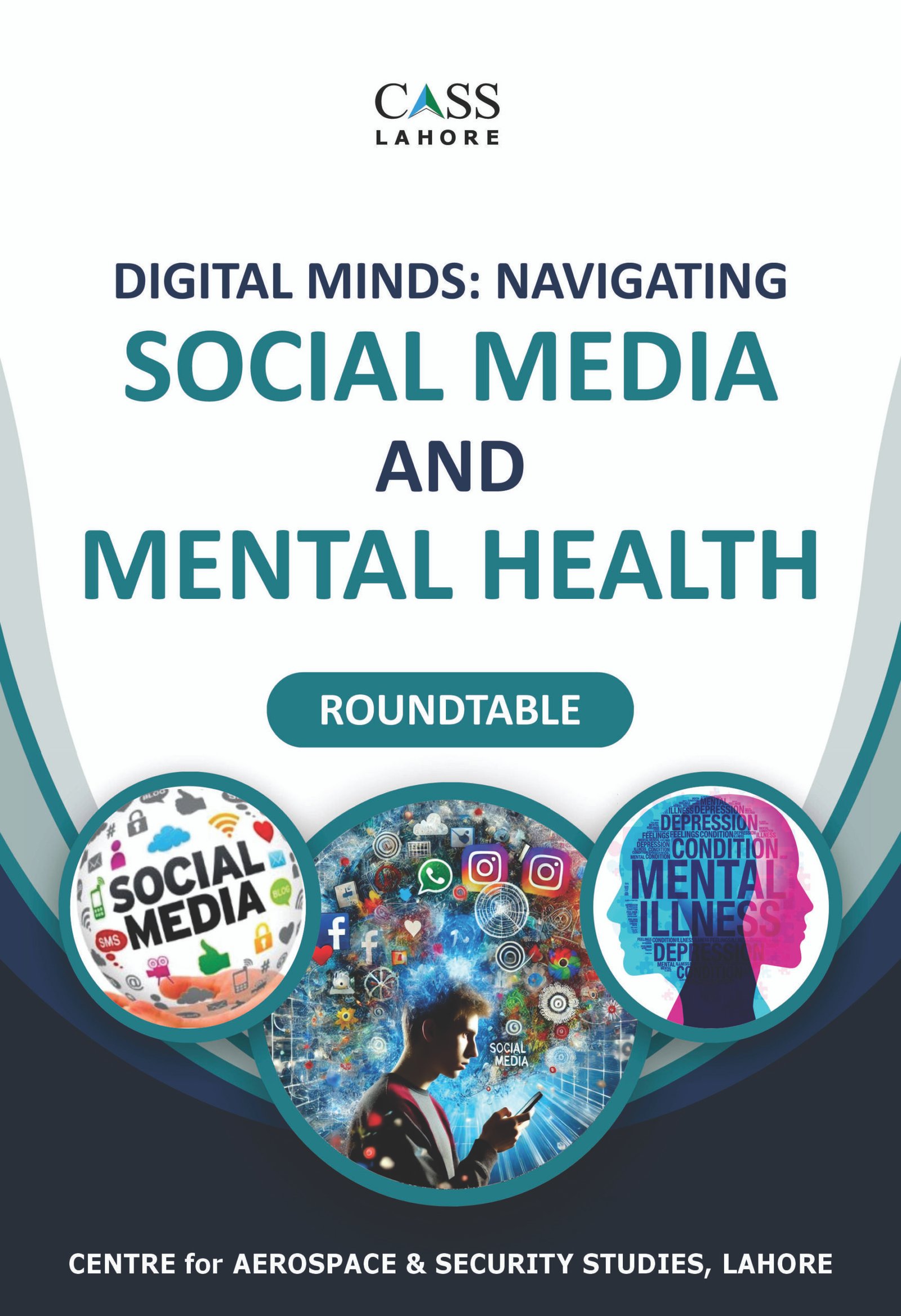
Post Event Report
A comprehensive report capturing expert analyses, strategic insights, key recommendations, media coverage, and event highlights.
Guest Speakers
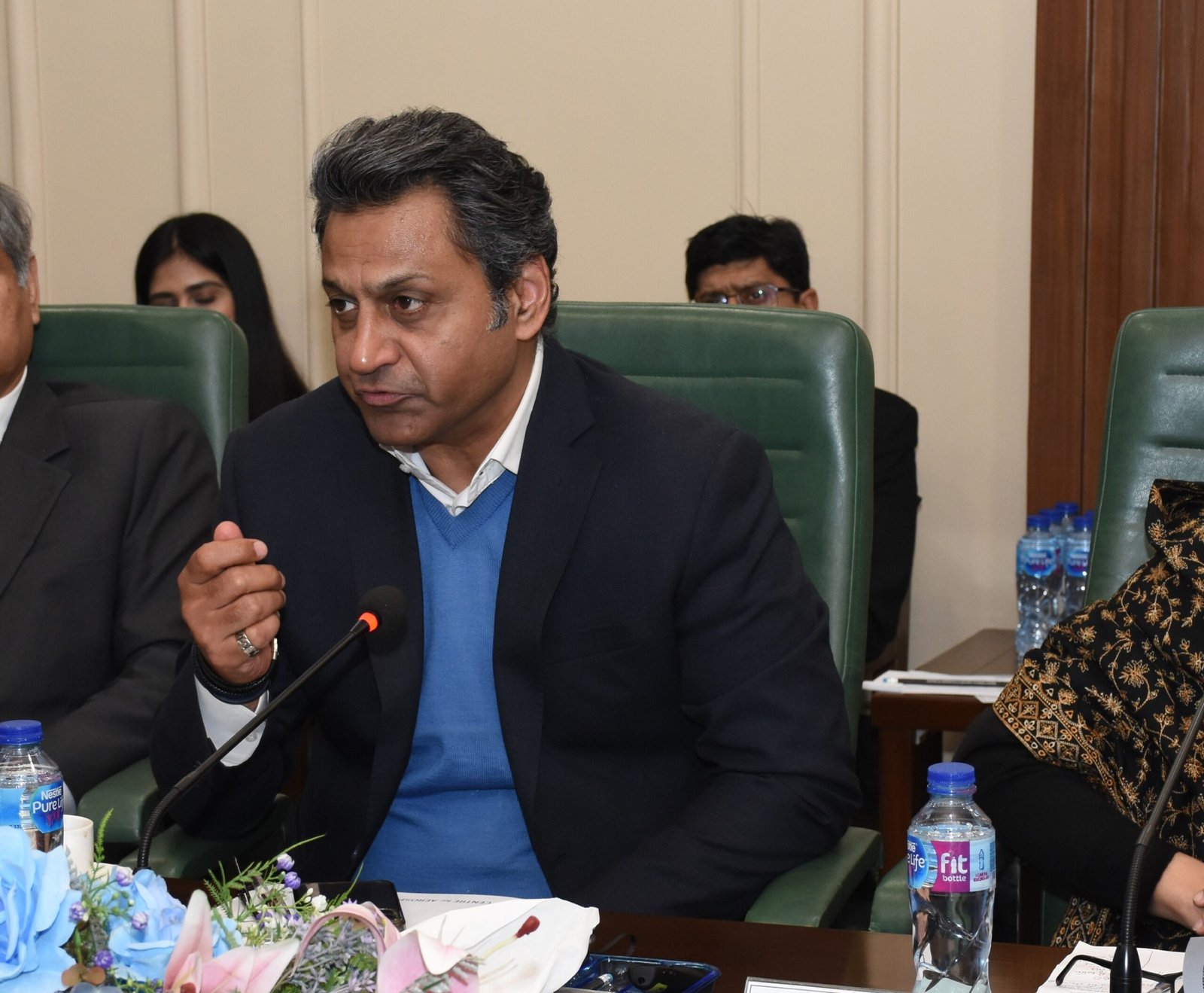
Mr Fahd Husain
President, Aik News
Ms Fatima Aslam
Lecturer, UMT
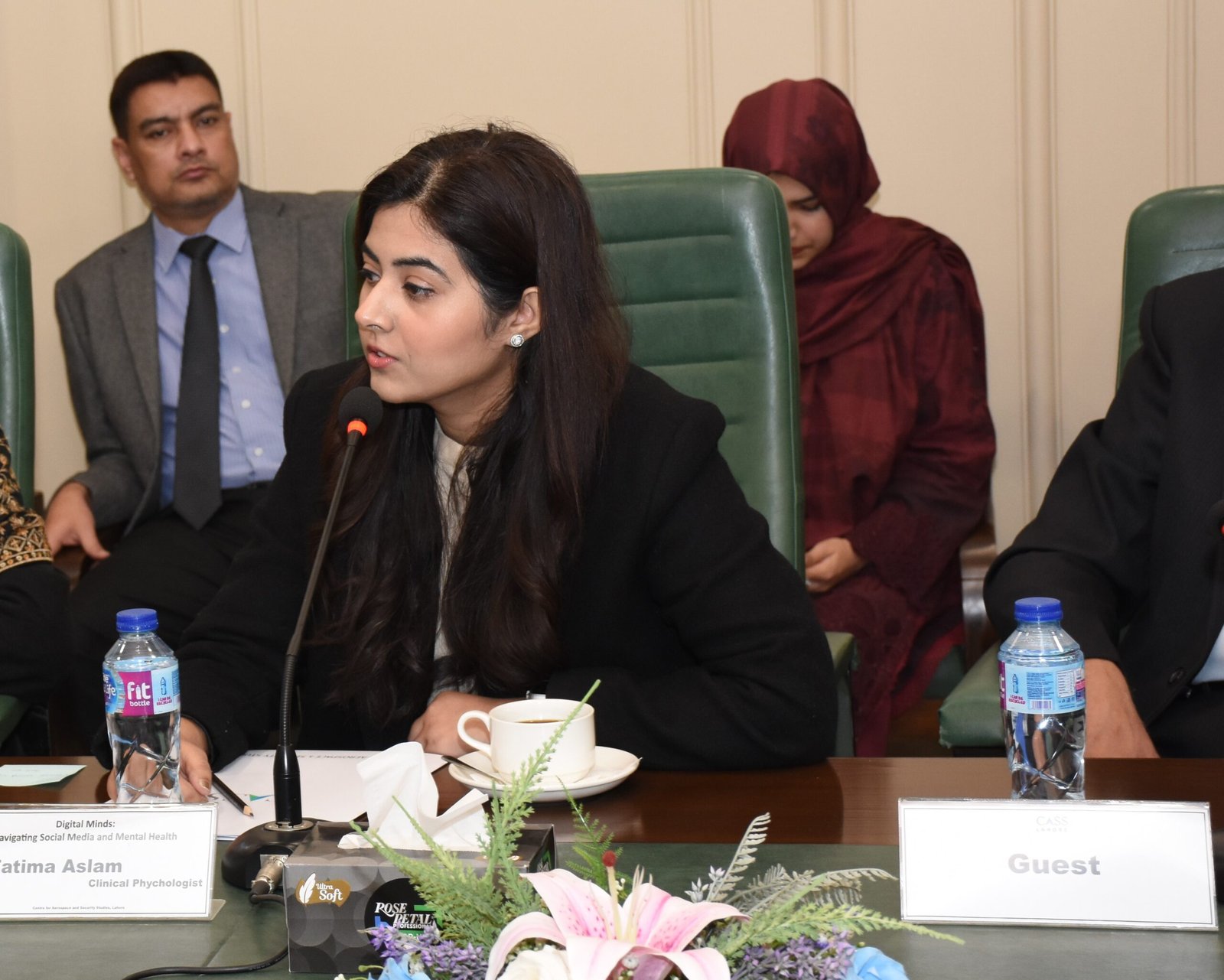
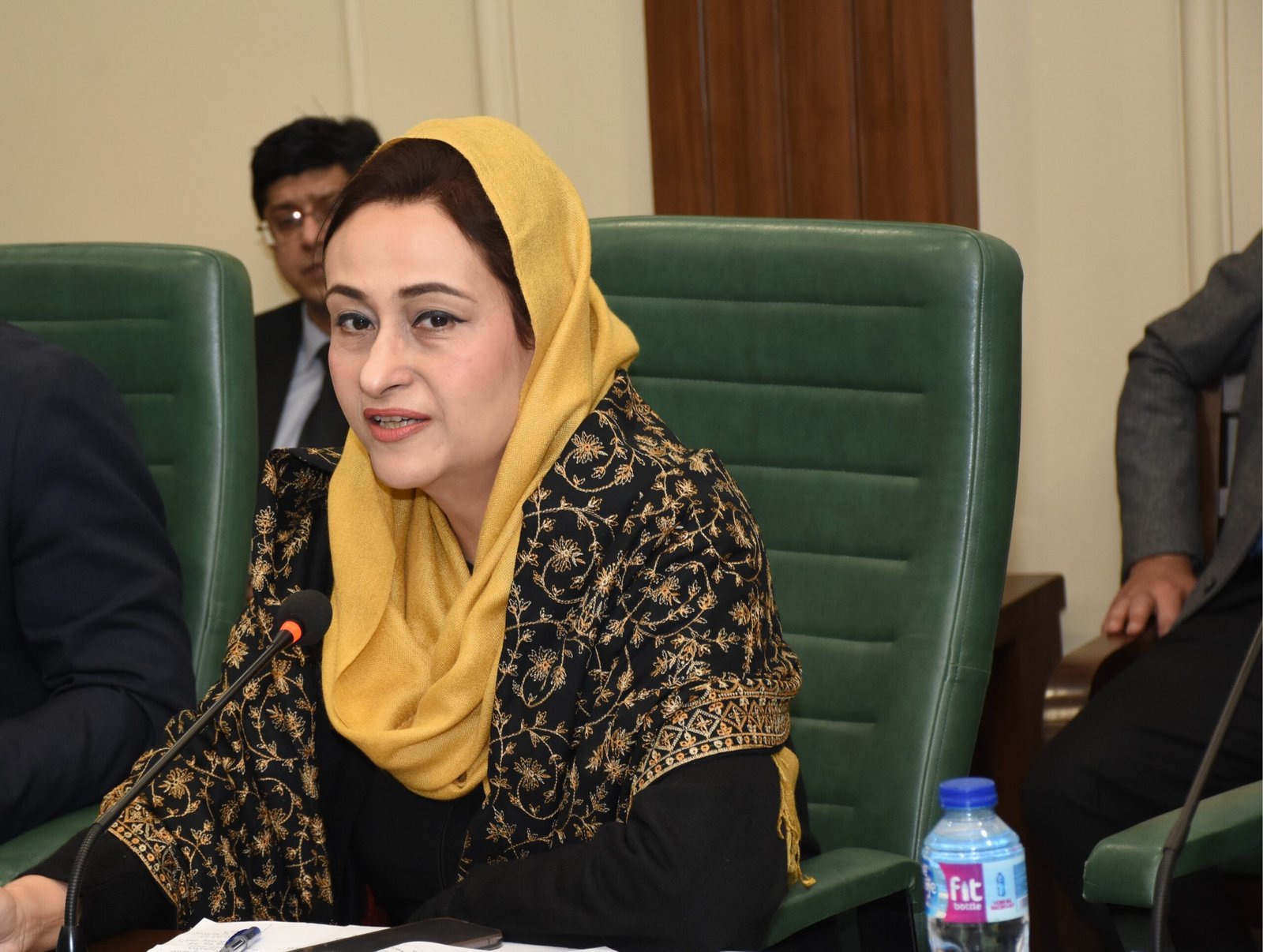
Prof Dr Rafia Rafique
Director Institute of Applied Psychology PU Lahore
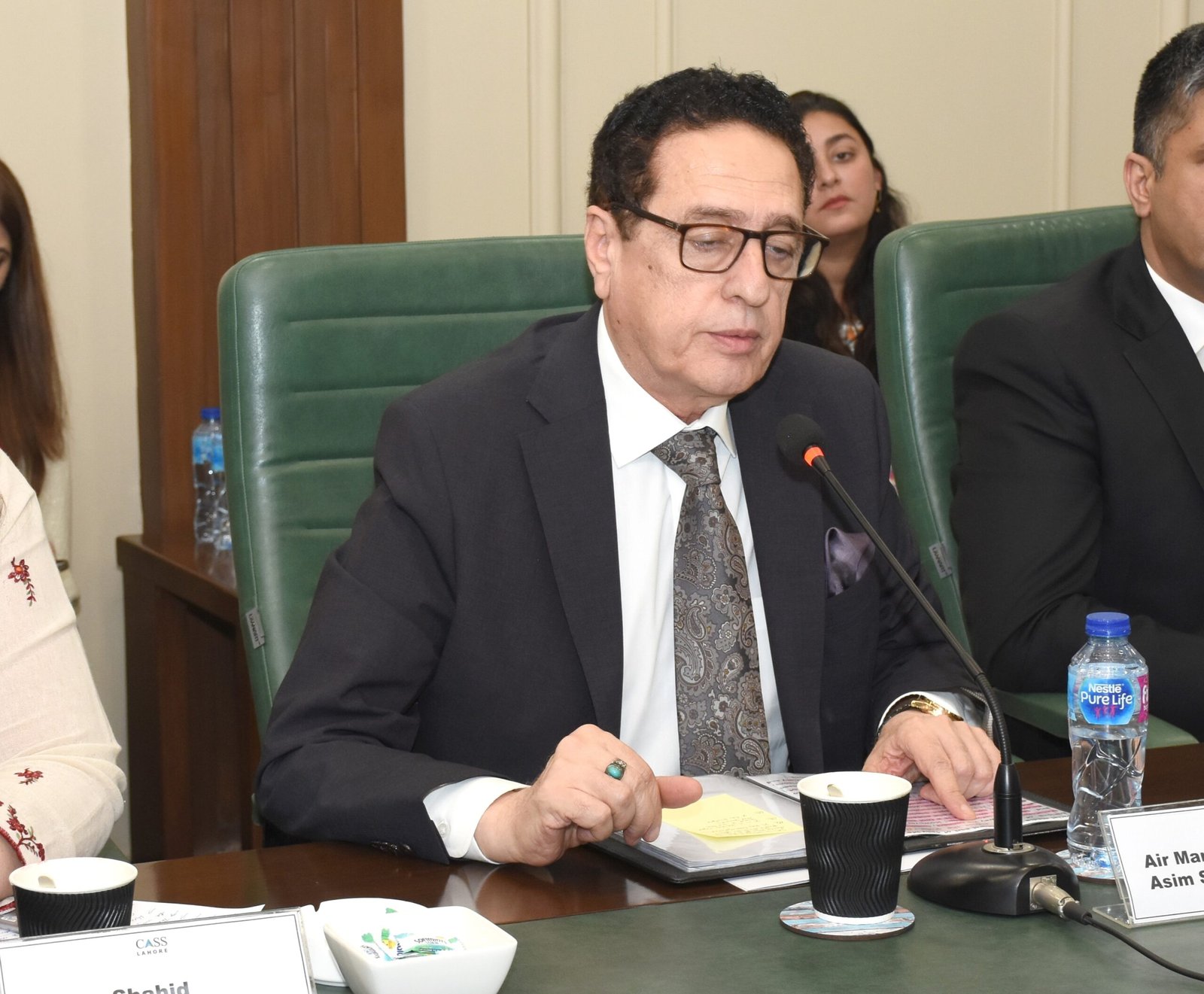
Event Chair
Air Marshal Asim Suleiman (Retd)
President, CASS Lahore
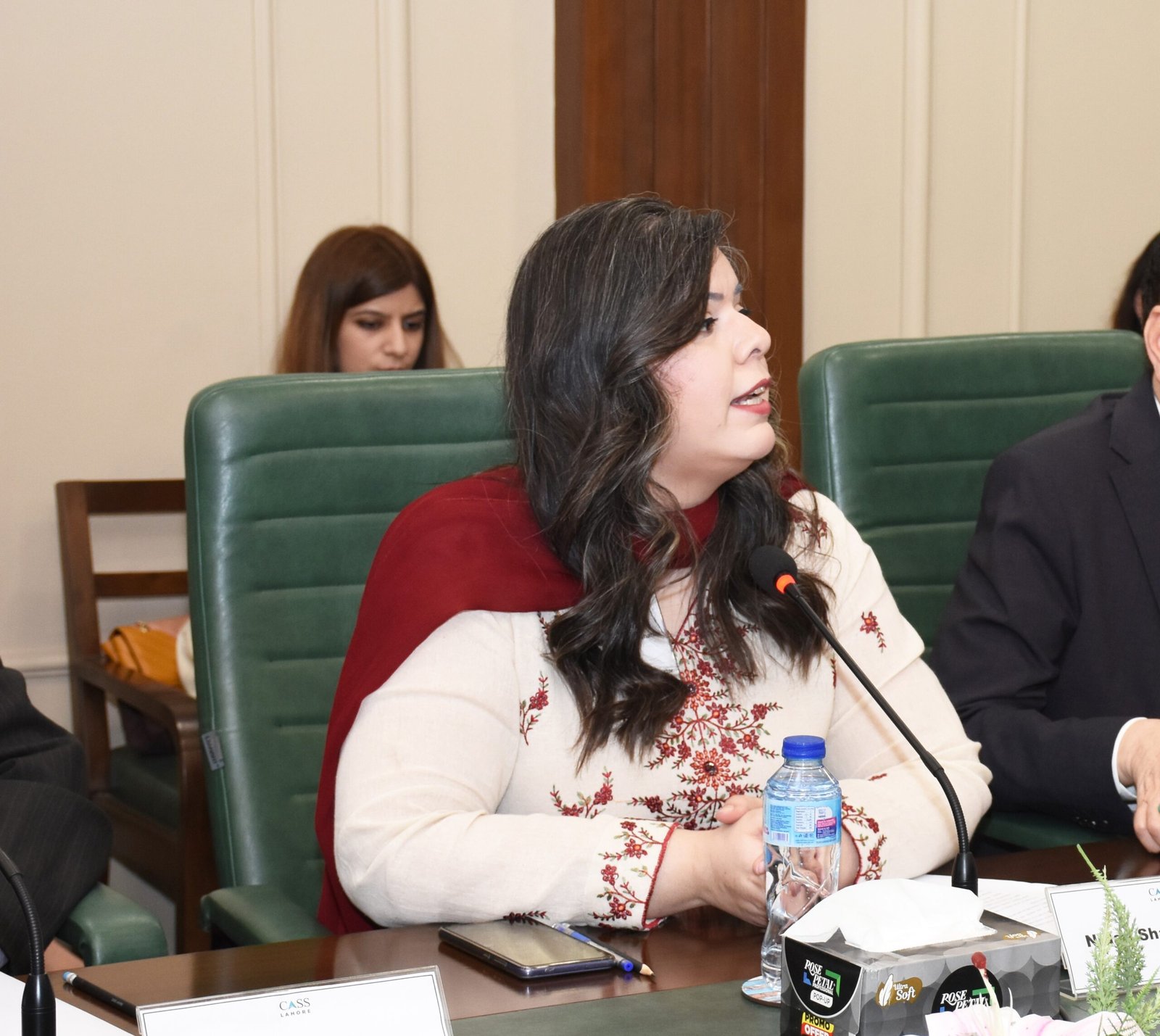
Event Coordinator
Nidaa Shahid
Associate Director, CASS Lahore

Master of The Ceremony
Azhar Zeeshan
Research Assistant

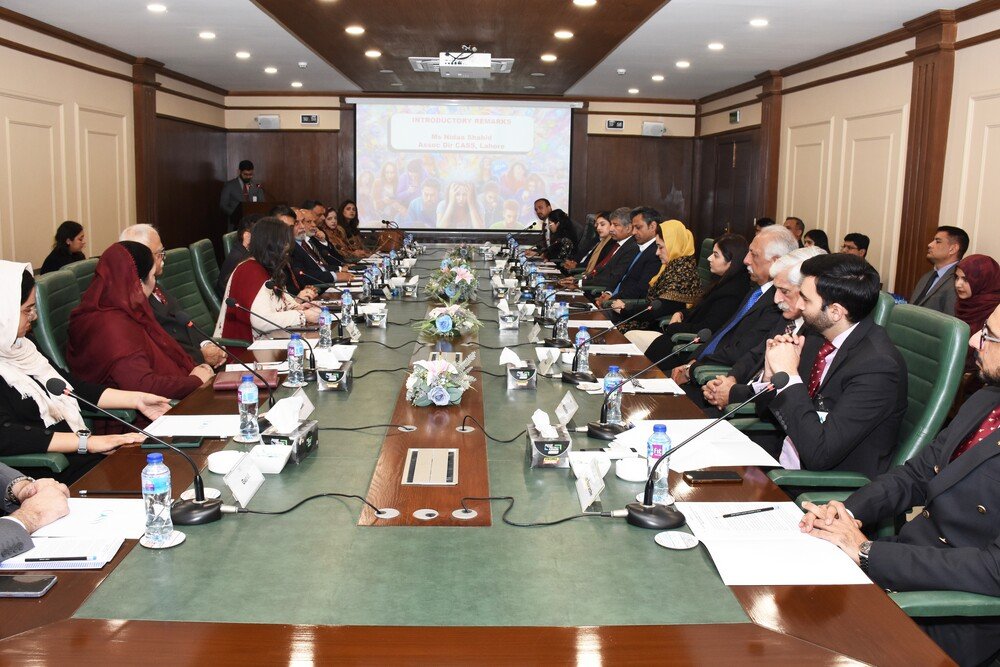


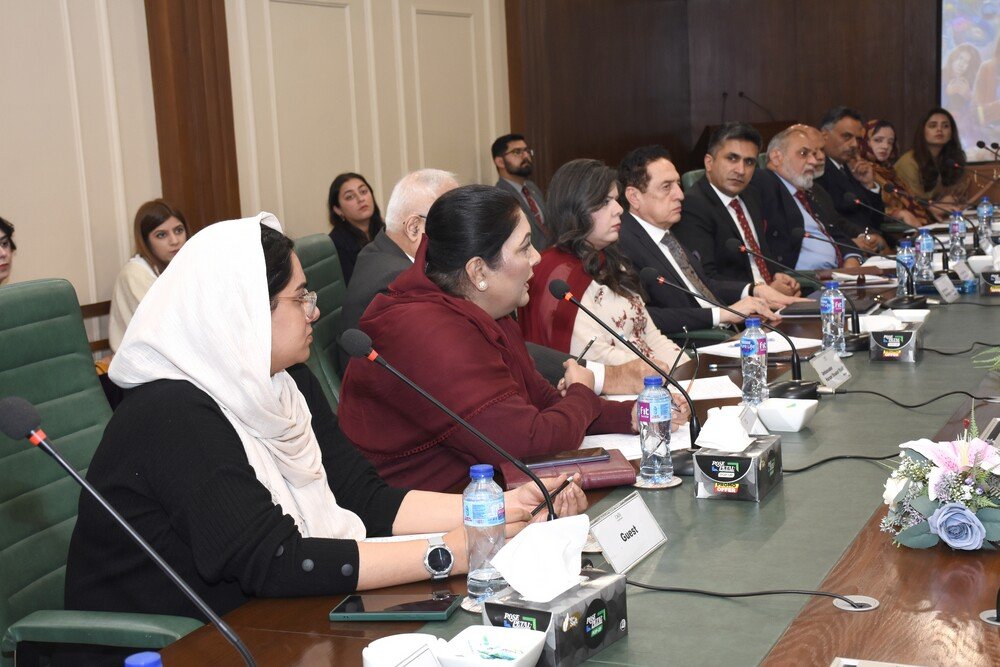


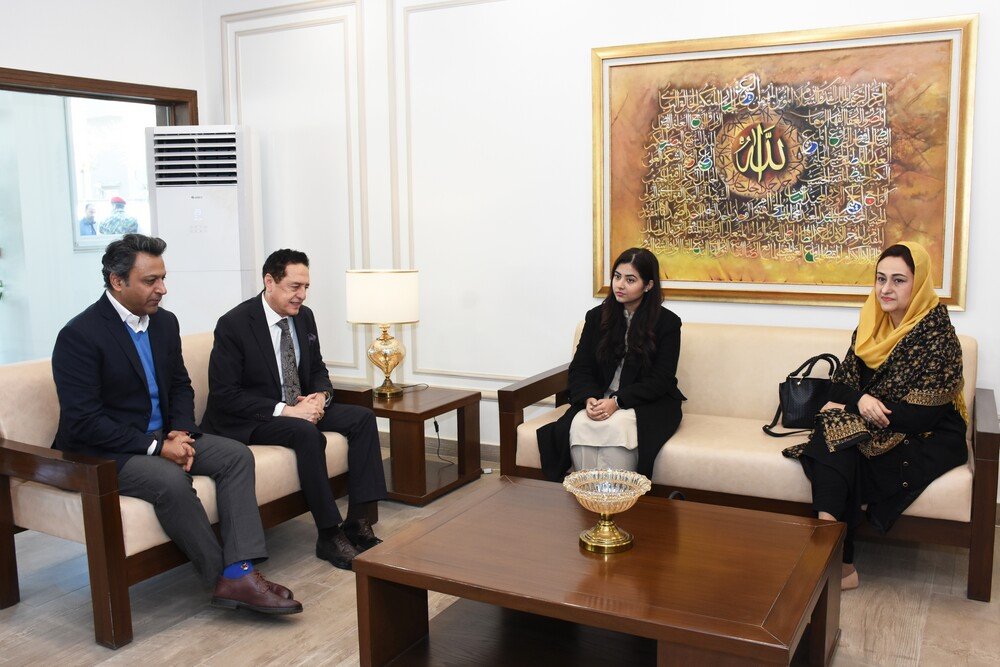
CASS LAhore

The Centre for Aerospace & Security Studies (CASS) was established in July 2021 to inform policymakers and the public about issues related to aerospace and security from an independent, non-partisan and future-centric analytical lens.
CASS Newsletter

@2025 – All Right Reserved with CASS Lahore.
- Home
- About Us
- Research Domains
- Publications
- Events
- Gallery
- Contact Us
@2021 - All Right Reserved. Designed and Developed by PenciDesign



